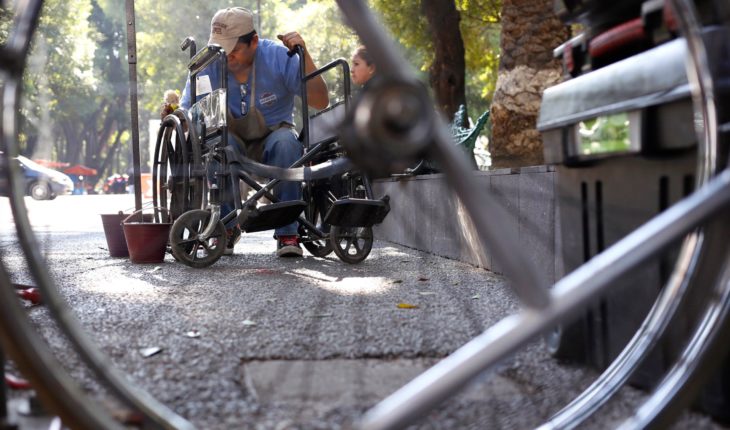In Mexico there are no laws that require health systems to offer adapted medical services and sex education to people with a disability, said Roxana Pacheco, general director of the Mexican Institute of Sexuality in Disability (Imsedis).
“We are considered sexless, Angelizados, we have no desire, which is for other people, not for us; Of course it is very important that people know that as anyone we have the right to exercise our sexual and reproductive rights, “he said.
READ: Inegi will include questions about disability in the census 2020
By sharing his experience, Cristina Sandoval explained that a car accident suffered 19 years ago caused a disability.
“When this happened to me, I was very young and the first thing that came to mind was no one is going to fix me, I’m not going to have a relationship again, because how am I going to walk with her?, that was the idea that I had” , he pointed out in an interview for Notimex.
In the case of Diana Reynoso Ramirez, said that as a person with low vision passes Camuflajeada, because it seems that has no “problem” as they call many, had boyfriends like any girl, friends and girlfriends, however, could not move as wanted.
“In my house I was brought up as any girl, without privileges, without the You are special, no; Sometimes I did get to hear words that tell you: “You’re useless, to see who loves you.”
Roxana Pacheco asserted that when people acquire this condition and ask the doctor what will happen to my sexuality? Many times they say, “Forget about it, devote yourself to rehab.”
READ: Athletes with intellectual disabilities, medals and obstacles
“The bad thing is that they take it to the family; So when you’re with the couple and you want to retake the subject, you repeat it: “You forget about it, you devote yourself to rehabilitation,” he said.
Sadly, says Diana, within the disability, this issue of sexuality or motherhood is viewed as a paradigm from the same disability, “even my classmates tell me how soon did they accept you like that?”
Cristina Sandoval explained that she lives with her children’s father, met him two years after her accident in a physical rehabilitation hospital because her brother also has a disability and he was going to take care of him.
“That’s where we clicked and fortunately I didn’t have those prejudices. He saw beyond a chair; He saw the person, “he counted.
The director of Imsedis said that they seek to sensitize health personnel and promote sex education programmes for people with disabilities; Their partners, their children, that is to say, for the whole environment.
“The country needs legislative harmonization, laws that force health systems to make reasonable adjustments, adaptations so that we can receive the quality medical services we need,” expressed.
Article 23 of the Convention on the Rights of Persons with Disabilities establishes “(…) The right of all persons with disabilities in the age of marriage, to marry and to establish a family on the basis of the free and full consent of the future spouses. ”
READ: Confront, not suffer: This is how the first professor with motor impairment in the UNAM has exceeded the exclusion
“If it is true that the Convention speaks of sexual and reproductive rights; We have the right to exercise as any human being our rights, but I also believe that the Convention is lacking, that as we have rights, to have responsibilities and obligations, he said.
Although a person with a disability has the right to have a child, educate and maintain it, the state is supposed to provide the system of support, as is the case in Sweden, he referred.
However, in this country the reality is different because, according to Roxana Pacheco, you can not say “I will have a child and that the state grant me a caregiver 24 for 24, specialized, to care for both of us and also to keep it. That doesn’t exist in Mexico. ”
Thank you for reading! Help us get on with our work. How? Now you can subscribe to the political Animal on Facebook. With your monthly donation you will receive special content. Find out how to subscribe here. Check out our list of frequently asked questions here.
translated from Spanish: The limitations of people with disabilities to exercise their sexuality
June 13, 2019 |





